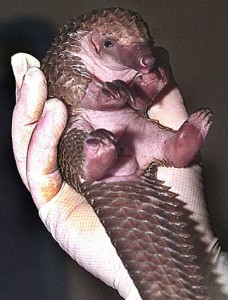How to do IELTS matching paragraph questions in reading. Learn useful tips and practise matching information to paragraphs for IELTS reading. This is quite an easy practice exercise for matching and is easier that.
Quick Tips for Matching Headings
- read through the headings options
- spot keywords
- think of paraphrases for keywords
- spot headings which use similar words and identify the difference
- heading through the passage and match main ideas to heading
- try to distinguish between main ideas and extra information
- the answers do not come in order
- your answer should be a letter not words
IELTS Matching Headings Practice
Below is a reading passage to practice matching headings questions for IELTS reading.
Passage: Pangolins
A) Pangolins, often called “scaly anteaters,” are covered in tough, overlapping scales. These burrowing mammals eat ants and termites using an extraordinarily long, sticky tongue, and are able to quickly roll themselves up into a tight ball when threatened. Eight different pangolin species can be found across Asia and sub-Saharan Africa. Poaching for illegal wildlife trade and habitat loss have made these incredible creatures one of the most endangered groups of mammals in the world.
B) Pangolin species vary in size from about 1.6kg (~3.5 lbs) to a maximum of about 33kg (~73 lbs). They vary in color from light to yellowish brown through olive to dark brown. Protective, overlapping scales cover most of their bodies. These scales are made from keratin — the same protein that forms human hair and finger nails. Overlapping like artichoke leaves, the scales grow throughout the life of a pangolin just like hair; scale edges are constantly filed down as pangolins dig burrows and tunnel through the soil in search of termites and ants. Pangolin undersides do not have scales, and are covered with sparse fur. Unlike African pangolins, Asian pangolins also have thick bristles that emerge from between their scales. With small conical heads and jaws lacking teeth, pangolins have amazingly long, muscular, and sticky tongues that are perfect for reaching and lapping up ants and termites in deep cavities. Pangolins have poor vision, so they locate termite and ant nests with their strong sense of smell.
C) There are eight pangolin species. All pangolins belong to the genus Manis in the family Manidae, which is the only family within the order Pholidota. Pangolins’ closest living relatives are the Xenarthrans – anteaters, armadillos, and sloths.
D) Pangolins are found in a variety of habitats including tropical and flooded forests, thick brush, cleared and cultivated areas, and savannah grassland; in general they occur where large numbers of ants and termites are found. Asian pangolins in particular are threatened by loss of habitat due to expanding agriculture and other human uses. Pangolins dig deep burrows for sleeping and nesting that contain circular chambers. Large chambers have been discovered in terrestrial pangolin burrows that were big enough for a human to crawl inside and stand up. Some pangolin species such as the Malayan pangolin also sleep in the hollows and forks of trees and logs.
E) These solitary mammals are nocturnal and highly secretive, thus it is difficult for scientists to study them in the wild, and many mysteries remain about their habits. Some pangolin species such as the Chinese pangolin sleep in underground burrows during the day, and others including African tree pangolins and Malayan pangolins are known to sleep in trees. They emerge in the evening to forage for insects. Pangolins are well adapted for digging: they dig burrows with their strong front legs and claws, using their tails and rear legs for support and balance. Tunneling underground, they excavate the sides and roofs of passages by pushing up and from side to side with their tough scaled bodies. They use their front and hind feet to back accumulated soil toward the burrow entrance, and vigorously kick dirt out of the entrance up to a meter or more. Pangolin scales provide good defense against predators. When threatened, pangolins can quickly curl into a ball, protecting their defenseless undersides. They also deter predators by hissing and puffing, and lashing their sharp edged tails.
F) Pangolins live predominantly on a diet of ants and termites, which they may supplement with various other invertebrates including bee larvae, flies, worms, earthworms, and crickets. This specialist diet makes them extremely difficult to maintain in captivity—they often reject unfamiliar insect species or become ill when fed foreign food. Wild pangolins locate insect nests using a well developed sense of smell. Voraciously digging ants and termites from mounds, stumps, and fallen logs with their claws, they use their extremely long sticky tongues to capture and eat them.
G) Pangolins are hunted for food, for use in traditional medicine and as fashion accessories, and for a rampant illegal international trade in scales, skins, and meat. There is high demand for nearly all of their body parts, principally from China. The large-scale illegal trade in Asian pangolins is drastically driving down their numbers throughout Southeast Asia. Rapid loss and deterioration of available habitat places added pressure on the dwindling numbers of remaining pangolins.
Matching Headings
Choose the correct heading from the list below (i – xi) for each of the above paragraphs (A-G).
- i) The Asian pangolin
- ii) Distribution and habitat
- iii) Pangolin behaviour
- iv) Taxonomy
- v) Pangolin burrows
- vi) The pangolin trade
- vii) Comparison of pangolin species
- viii) What is a pangolin?
- ix) Description of a pangolin
- x) Why pangolins are endangered
- xi) The pangolin diet
Questions 1-7
- Paragraph A =
- Paragraph B =
- Paragraph C =
- Paragraph D =
- Paragraph E =
- Paragraph F =
- Paragraph G =
Answers
Click below to reveal the answers.
Answers.
RECOMMENDED FOR YOU
- Matching Headings Tips & Practice Lesson (more practice)
- Yes No Not Given Reading Practice
- ALL IELTS READING LESSONS & TIPS
.





